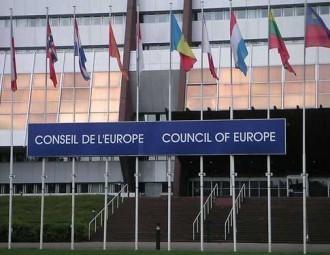Viachaslau Jarashevich: Info Office must be a bridge between Council of Europe and Belarus

New leader of the Council of Europe Information Office in Belarus tells about future plans and strategy of the Info Office that didn’t practically work since 2010.
Viachaslau Jarashevich, an associate professor of the Belarus State University, candidate of economics, entered in the responsibilities of the new leader of the Council of Europe Information Office last week. In his first interview to the EuroBelarus Information Service in this position he specified the main areas of his work:
- The point of Information Office’s work is of course, to spread information about the Council of Europe, about the main principles of the work of this organization and about how open this structure is for Belarus on the whole; and, surely, to prepare the social view to the thought that Belarus should be present in the Council of Europe. Because Belarus remains the only European country that is not a member of this organization, and, personally, I believe it to be not quite normal. Europe shouldn’t have “blank spots” on its map. The ideas and values that the Council of Europe implements are rather universal, they are shaped and are understandable – in our society, too.
The main question in the relations of Belarus and Europe is the imposition of moratorium on the death penalty; well, at least the moratorium. I find this idea absolutely adequate and I agree on the point that justice should have other ways to influence law-breakers than depriving their lives. What concerns other arguable political issues, it appears that the Information Office is unlikely to be actively involved in their solution – all the efforts will be concentrated on the abolition of the death penalty. This is our main goal for the near future.
According to Viachaslau Jarashevich, a round table with the leaders of the religious communities concerning the question of death penalty abolition will be organized before long.
- Belarusan Orthodox Church has even made a suggestion so as to conduct this event in one of the churches in Belarus; however, this is an open question. It is going to be a public event; we are planning to invite journalists, deputies from the House of Representatives – we even have a working group led by Mikola Samaseika. Foreign Ministry of Belarus is aware that this event is going to happen and no obstacles can emerge there.
Information Office puts special attention to the dialog with the youth:
- We already had a meeting with the youth leaders from BSU, and they understand that principles and values of the Council of Europe among young people are to be promoted. Let me emphasize that certain maximalism is typical of young people: they have high expectations and are often disappointed if their expectations are fulfilled not right away. Personally, I can advise them to be more patient and not to expect that all their wishes in relation to the Council of Europe will be implemented immediately. We are planning to organize a round table with the leaders of the youth organizations, student government, including BSU. The process requires time; but I do hope that our collaboration will develop. It should be noted that the Information Office is working on the basis of BSU and is a shared project of the Council of Europe and this university.
What concerns other events, at the end of this year I want to have Council of Europe press tour, so that the actions of the Information Office become known not only in Minsk. Because I should confess that earlier it wasn’t very noticeable neither in the official nor in the private media. We have to make swift progress till the end of the year.
Council of Europe Information Office is a unique project aimed at collaboration and by no means quarrelsome. Information Office should turn into bridge between the Council of Europe and Belarus, not any kind of barrier with its own ideas. The main goal is for Belarus to entry the Council of Europe as soon as possible. And I do hope that we will cope with this mission. Any citizen can turn to us for help, - Viachaslau Jarashevich told.
-
03.01
-
07.10
-
22.09
-
17.08
-
12.08
-
30.09








































